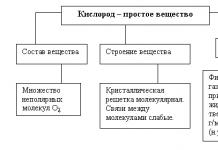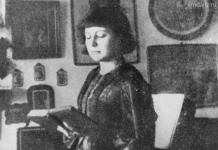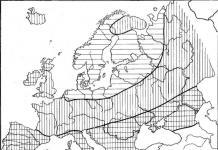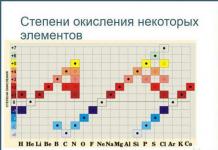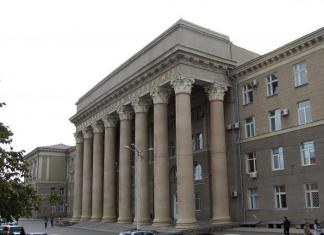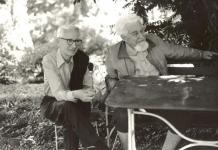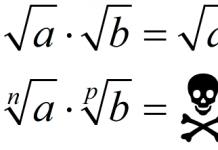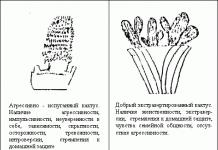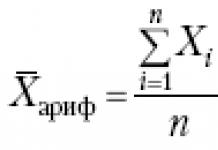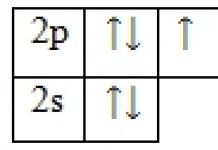65 0
on an alliance in the war against Nazi Germany and its accomplices in Europe and on cooperation and mutual assistance after the war - signed in London on 26.V by the People's Commissar for Foreign Affairs of the USSR V. M. Molotov and the Minister of Foreign Affairs of England A. Eden. A.-s. ratified by the Supreme Soviet of the USSR on June 18, 1942 and by the English King George VI on June 24, 1942. The exchange of ratification instruments was carried out on July 4, 1942 in Moscow.
Beginning of negotiations about A.-s. was started in December 1941, during Eden’s visit to Moscow. Eden had a series of conversations with I.V. Stalin and V.M. Molotov, and the published communiqué indicated the unity of views of both sides on issues related to the defeat of Germany and the post-war system.
In April 1942, the British government invited People's Commissar for Foreign Affairs V. M. Molotov to visit London to continue negotiations. During this trip, V.M. Molotov signed the A.-S. d.
In the first part A.-s. d. (Articles 1-2) speaks of providing each other with military and other assistance not only against Germany, but also against all states “that are associated with it in acts of aggression in Europe.” Both sides pledged not to negotiate with Germany and its allies “other than by mutual agreement.” This part of the agreement replaced the Anglo-Soviet agreement of 1941 (see).
In the second part A.-s. d. (Articles 3-8) establishes the basic principles of post-war cooperation between the USSR and Great Britain “for the purpose of organizing security and economic prosperity in Europe.” In Art. 3 both sides “declare their desire to join with other like-minded states in adopting proposals for common action in post-war period in order to maintain peace and resist aggression." The same part of the A-S.D. contains an obligation to provide mutual assistance in the post-war period if one of the parties again becomes involved in hostilities with Germany or its allies (Article 4). This article of the A.-S.D. must remain in force until both parties “deem it unnecessary due to their acceptance of the proposals mentioned in article 3.”
The contracting parties also pledged “not to seek territorial acquisitions for themselves and not to interfere in the internal affairs of other states”, “to provide each other with all mutual economic assistance after the war”, “not to enter into any alliances and not to take part in any coalitions”, directed against the other side (vv. 5-7). Part II A.-s. d. remains in force for a period of 20 years and is subject to automatic renewal unless one of the parties notifies 12 months before the expiration of this period of its desire to denounce the agreement.
After the end of the war, the British side made a proposal to extend the A.-S. for 50 years. Responding to a letter from the British Foreign Minister E. Bevin on this issue, J.V. Stalin wrote (January 22, 1947) that “before extending this treaty, it is necessary to change it, freeing it from the reservations that weaken this treaty.”
Literature: Stalin, I.V. About the Great Patriotic War Soviet Union. Ed. 5. M. 1946. pp. 32-33, 70-74.- Foreign policy of the Soviet Union during the period Patriotic War. T. I. [M.]. 1944. pp. 116, 235-241, 254-263. - Great Britain. Foreign office. Treaty series. 1941. N 15. London. 1941. 5 p. 1942. No. 2. London. 1942. 9p.
Meanings in other dictionaries
Anglo-Siamese Treaties
They noted the stages and forms of English penetration into Siam and changes in the relationship between the two countries from the beginning of the struggle for the “opening” of Siam to the First World War. The strengthening of the trade and political activity of the English East India Company after its establishment in India affected the penetration of Indo-China peninsula and in attempts to achieve the lifting of Siam’s self-isolation that came after...
Anglo-Soviet Trade Agreements
1) A.-s. t.s. 1921 - signed in London on 16. III from the RSFSR by L. B. Krasin, from Great Britain by the Minister of Trade Sir Robert Horne. This was the first agreement general between the Soviet Republic and Great Britain, and at the same time the first agreement Soviet republic with a great power. It broke the diplomatic blockade of the RSFSR and opened a whole series of semi-political, semi-trade relations...
on an alliance in the war against Nazi Germany and its accomplices in Europe and on cooperation and mutual assistance after the war - signed in London on 26.V by the People's Commissar for Foreign Affairs of the USSR V. M. Molotov and the Minister of Foreign Affairs of England A. Eden. A.-s. ratified by the Supreme Soviet of the USSR on June 18, 1942 and by the English King George VI on June 24, 1942. The instruments of ratification were exchanged on July 4, 1942 in Moscow. Beginning of negotiations about A.-s. was started in December 1941, during Eden’s visit to Moscow. Eden had a series of conversations with I.V. Stalin and V.M. Molotov, and the published communiqué indicated the unity of views of both sides on issues related to the defeat of Germany and the post-war system. In April 1942, the British government invited People's Commissar for Foreign Affairs V. M. Molotov to visit London to continue negotiations. During this trip, V.M. Molotov signed the A.-S. d. In the first part of A.-s. d. (Articles 1-2) speaks of providing each other with military and other assistance not only against Germany, but also against all states “that are associated with it in acts of aggression in Europe.” Both sides pledged not to negotiate with Germany and its allies “other than by mutual agreement.” This part of the agreement replaced Anglo-Soviet agreement 1941(cm.). In the second part A.-s. d. (Articles 3-8) establishes the basic principles of post-war cooperation between the USSR and Great Britain “for the purpose of organizing security and economic prosperity in Europe.” In Art. 3, both sides “declare their desire to join with other like-minded states in adopting proposals for common action in the post-war period with a view to preserving peace and resisting aggression.” In the same part A.-s. d. contains an obligation to provide mutual assistance in the post-war period if one of the parties again becomes involved in hostilities with Germany or its allies (Article 4). This article by A.-s. d. must remain in force until it is “deemed unnecessary by both parties in view of their acceptance of the proposals referred to in Article 3.” The contracting parties also pledged “not to seek territorial acquisitions for themselves and not to interfere in the internal affairs of other states”, “to provide each other with any mutual economic assistance after the war”, “not to enter into any alliances and not to take part in any coalitions”, directed against the other side (vv. 5-7). Part II A.-s. d. remains in force for a period of 20 years and is subject to automatic renewal unless one of the parties notifies 12 months before the expiration of this period of its desire to denounce the agreement. After the end of the war, the British side made a proposal to extend the A.-S. for 50 years. Responding to a letter from the British Foreign Minister E. Bevin on this issue, J.V. Stalin wrote (January 22, 1947) that “before extending this treaty, it is necessary to change it, freeing it from the reservations that weaken this treaty.” Literature: Stalin, I.V. About the Great Patriotic War of the Soviet Union. Ed. 5. M. 1946. pp. 32-33, 70-74.- Foreign policy of the Soviet Union during the Patriotic War. T. I. [M.]. 1944. pp. 116, 235-241, 254-263. - Great Britain. Foreign office. Treaty series. 1941. N 15. London. 1941. 5 p. 1942. No. 2. London. 1942. 9p.
Moscow negotiations on two treaties (mutual assistance between the USSR and England and on the post-war world order), which took place during Eden’s visit to the USSR in December 1941, were not completed due to disagreements on the second treaty that emerged between the parties. The continuation of negotiations was to take place in London. As a result, in January - March 1942, a series of meetings took place between Eden and me, at which we tried to come to some kind of agreement. However, the pace of negotiations turned out to be quite slow, which was explained by two main reasons: the government crisis in England and the difficulty of overcoming differences in the content of the treaty itself.
The government crisis arose in connection with the military failures that England had at the beginning of 1942. Particularly strong excitement in the country was caused by the breakthrough of the German battleships Shangorst and Gneisenau through the English Channel and Pas-de-Calais (February 12) and the fall of Singapore (February 15). My entry dated February 18, 1942 states:
“On the 17th I was in parliament. Churchill spoke about the fall of Singapore. He looked bad, was irritable, touchy, stubborn. The deputies were critical and nervous. Churchill was greeted and seen off poorly. I have never seen anything like this before... After the prime minister’s speech, it became clear: general debates in parliament are inevitable. They argued: when? Churchill again resisted. Decided: next week. My general impression is that a crisis is quickly brewing.
Yesterday's meeting showed that the wave of discontent is high. If Churchill continues to persist, it may overwhelm him. I think Churchill will give in and compromise.
Who are Churchill's possible heirs if he resigns? Two names are widely quoted: Eden and Cripps. Eden has been listed for a long time. Cripps's star has soared enchantingly now (after returning from Moscow, where he was the British ambassador - I.M.). Reasons: the general public is sure that Cripps “brings happiness” (no wonder Russia, where he was ambassador, entered the war!), then he is progressive, smart, an orator, and most importantly, he bets on the winning card - the USSR. In addition, he is outside the party, and everyone is fed up with party machinations... Is Cripps's popularity lasting, however? I doubt. But I have no doubt that if the government were reconstructed now, he could become prime minister or at least a member of the military cabinet.
Personally, I am for Churchill as prime minister. He is reliable as an enemy of Germany; He is a strong-willed man: he rules himself. Neither Cripps nor Eden are strong enough to rule the country in such turbulent times."
A few days after the above lines were written, a reconstruction of the government actually took place: several Chamberlainite ministers were removed, and several new Churchillite ministers were appointed. Churchill remained prime minister, Cripps became a member of the war cabinet and leader of the House of Commons (an important post in the English parliamentary hierarchy). As a result, the government crisis was overcome, and Churchill's position was strengthened again.
Be that as it may, by early March 1942 the first reason for the slowness of the treaty negotiations (the government crisis) had been eliminated. However, the second and more serious remained - this was the discrepancy between the parties regarding the very content of the agreement.
Stalin demanded that England now recognize the Soviet borders of 1941 (i.e., including the Baltic states, Bessarabia, Western Ukraine and Western Belarus). The British side, on the contrary, wanted to postpone the issue of borders until the end of the war.
On April 8, Eden proposed that the Soviet People's Commissar for Foreign Affairs, V.M. Molotov, come to London to complete the negotiations and sign the treaty. The People's Commissar, however, replied that “at the present time he cannot leave Moscow” and that I was entrusted with bringing the issue of the treaty to a conclusion. Eden took Molotov’s refusal rather painfully, but continued the negotiations, although without much enthusiasm. At the end of April, Molotov suddenly, completely unexpectedly, telegraphed that he accepted the invitation of the British government and would be in London in May. I did not know the reason for this change in the People's Commissar's plans, and only during his stay in England did it become clear that Roosevelt played a decisive role in this.
The fact was that in connection with disagreements on the issue of the Treaty American President came into direct contact with Stalin. The President was also interested in many other problems related to the war. His idea was to personally meet with Stalin and, through friendly discussion, resolve everything controversial that stood between both sides. Subsequently, M.M. Litvinov, who was then the Soviet ambassador in Washington, told me that, in his impression, Roosevelt wanted to talk with Stalin face to face, without Churchill.
This impression of M.M. Litvinov is confirmed by my own experience. On February 2, 1942, one of Roosevelt's close advisers, Averell Harriman, flew to London and invited me to breakfast, which took place on February 5. We were together, and Harriman directly asked me whether it would be possible to arrange a meeting between Roosevelt and Stalin? Harriman knows that Roosevelt wants such a date—does Stalin want it? Harriman suggested either Iceland or the Bering Strait region as a possible meeting place.
I reported the conversation with Harriman to Moscow and received an answer from there that Stalin considered a meeting with Roosevelt desirable, but due to the tense situation at the front, he could not leave the USSR and offered to meet in Arkhangelsk or Astrakhan. I conveyed Moscow's response to Harriman. By that time, Scharngorst and Gneisenau had already broken into the North Sea, and Harriman said that under such circumstances, Iceland and Arkhangelsk as a meeting place were no longer available, Astrakhan was too far for Roosevelt, and only one possibility remained - the Bering Strait area. But this area did not suit Stalin. As a result, the meeting did not take place.
From everything that was said, I was left with the impression that Roosevelt really wanted to see Stalin one on one, without Churchill. In a message dated April 12, Roosevelt wrote:
“Perhaps, if things go as well as we hope, you and I will be able to spend a few days together next summer near our common border near Alaska. But for now I think it is extremely important from a military and other points of view to have something that comes as close as possible to an exchange of views. I have in mind a very important military proposal involving the use of our armed forces in such a way as to alleviate the critical situation in your country. Western Front. I attach great importance to this goal. Therefore, I would like you to consider the possibility of sending Mr. Molotov and a trusted general to Washington in the very near future.”
This was the background to Molotov’s visit to the United States. Well, since he was going to Washington, it was natural to stop in London on the way. This led to an unexpected change in the People's Commissar's plans.
Meanwhile, in preparation for the upcoming negotiations between Molotov and Eden, around May 1, I handed over to the Foreign Office our counterproposals on the treaty, from which it followed that the Soviet side considered the issue of the Soviet-Polish border to be within the competence of only the USSR and Poland. There was also one new proposal: British government the protocol was supposed to authorize the conclusion by the Soviet Union of mutual assistance pacts with Finland and Romania.
So, I began to wait for the arrival of the People's Commissar for Foreign Affairs in London. In war conditions, this was far from a simple operation. We were warned that the People's Commissar would fly directly from Moscow to Scotland, where he would land at the airfield in Dundee. A fairly large group of people went there on a special train to meet the Soviet People's Commissar: the British side was headed by a permanent comrade of the Minister of Foreign Affairs, A. Cadogan, who was accompanied by several civilian and military representatives; on the Soviet side, in addition to me, among those greeting me were trade representative Borisenko, the head of the military mission, Admiral Kharlamov, as well as the Soviet ambassador to the emigrant governments in England A.E. Bogomolov.
Our train arrived at Dundee and was put on a siding. We believed that the Soviet plane would arrive the next morning (the flight itself was supposed to take place at night), but in the evening a message came from Moscow that, due to bad weather at that end, the People's Commissar's flight was postponed until tomorrow. The next day, in the evening, a message came again: the weather in Moscow was unflyable. On the third day the weather in Moscow cleared up, but, as luck would have it, the weather English end turned out to be unflyable. The same thing happened on the fourth day.
This game of hide and seek with the weather continued for about a week. The company of those greeting them was bored, languishing, and as a form of entertainment they traveled around the surrounding area, but did not leave Dundee.
Meanwhile, a special train from London, standing on a siding and inhabited by some unusual characters, including foreigners, could not help but attract the attention of the railway staff. He soon learned the destination of our train. This aroused everyone's curiosity even more. The city of Dundee is not very large, everyone knows each other there, and all sorts of “news” spread among the residents with extraordinary speed. It is not surprising, therefore, that on the fifth or sixth day after our arrival in Dundee, the mayor of the city appeared before the carriages of the special train, in formal suit and with a chain around his neck, to greet on behalf of the people “His Excellency the Ambassador of the Allied Power.” The mayor was accompanied by several municipal councilors. I invited the city deputation into the carriage and, thanking them for their attention, treated them to tea and cookies. But when the deputation left, we held a “military council” and decided that this could not continue. Obviously, the purpose of the train's arrival became an open secret, and this could jeopardize the safety of Molotov's flight from the USSR to England. The conclusion we drew from this was that the next morning the whole train and its occupants returned to London. Before leaving, a rumor was spread that the visit of the Soviet People's Commissar was cancelled. To meet Molotov, only two people were left on site: V.N. Pavlov, Molotov’s translator, who arrived in England in advance, and one Foreign Office official who had not yet held high ranks.
Molotov arrived in England on May 20. I went to meet him on the road from Dundee to London. Somewhere in the middle of the journey, I changed from a train going north to a train going south, where the Soviet People's Commissar and his entourage were, including the “trusted general” whom Roosevelt asked Stalin for. On the way, in the carriage, I briefly informed Molotov about the state of affairs in England and, among other things, warned him that our draft treaty had little chance of being approved by the British side. The People's Commissar was clearly dissatisfied with my message, but said out loud:
Let's see!
Just before London, the Soviet guests were met by Eden and Cadogan and taken to Checkers, where the People's Commissar was given an official residence. It was a symbol of honor. Only the most distinguished visitors from other countries stayed at the prime minister's country residence.
That same evening Churchill gave a large dinner in Chequers in honor of the Soviet delegation with the participation of many members of the government, and after dinner he took Molotov, Eden and me into his office and began to talk. There were only four of us. I played the role of translator. We sat in the prime minister's office for two hours. I remember well that Churchill, standing in front of a large globe, described in detail with enthusiasm and fervor how England had fought the war so far and what its plans were for the future. Illustrating his words on a globe, he especially emphasized the courage and determination of England - these small islands that form an almost microscopic piece of land among huge continents and boundless oceans - to resist the alliance of three great powers that have taken the path of world aggression.
And so,” Churchill exclaimed, “two years have passed, we have survived and not only have we survived, but we are also gaining strength, growing stronger, and counting on victory!” This looks like a real miracle!
The prime minister preferred to remain silent about the fact that the British Isles were supported by a gigantic empire. He also said little about help from the United States.
Regarding the upcoming treaty negotiations, Churchill somewhat cryptically noted that if agreement could not be reached on the existing texts (English and Soviet), he might make some alternative proposals.
The next day, formal negotiations began with Eden at the Foreign Office. Besides me, Molotov was also accompanied by Sobolev and translator Pavlov. Eden was accompanied by a group of ministry workers led by Cadogan.
There were major disagreements between the parties, especially on the issue of Poland: we insisted on recognizing the Soviet-Polish border as it was before June 22, 1941, and the British certainly wanted to leave the resolution of this issue until the peace conference after the end of the war. They also objected to the Anglo-Soviet protocol authorizing the conclusion by the Soviet Union of mutual assistance pacts with Finland and Romania. There were other points of disagreement.
Two more meetings were held in fruitless disputes, without leading to any agreement. At the fourth meeting, Eden, having stated that it was apparently difficult to achieve unanimity on the existing draft treaties, put it on the table completely new document. These were the alternative proposals that Churchill mentioned during our first evening conversation.
The reaction of the Soviet side was sharply negative: alternative proposals completely bypassed the issue of the borders of the USSR. A telegram with the text of the proposals was sent to Moscow.
And suddenly an unexpected answer came from Moscow: the Soviet delegation was ordered to withdraw all its previous proposals and conduct further negotiations on the basis of a new English project.
I don’t know what made Stalin change his position so dramatically, but be that as it may, a turn was made. Based on alternative proposals, it was no longer difficult to agree on the final version of the treaty. On May 26, in a solemn ceremony, in Eden’s office, in the presence of Churchill, Attlee and Sinclair (the three party leaders that made up the government coalition), with a huge crowd of photographers and cameramen, the agreement was signed by Molotov and Eden. It was called “Treaty of Alliance in the War against Nazi Germany and its accomplices in Europe and of Cooperation and Mutual Assistance after the War.”
The first part, which replaced the agreement on mutual military assistance on July 12, 1941, stated that both sides throughout the war provide each other with military and all other assistance in the fight against Nazi Germany and its European accomplices, and also undertake not to engage in they negotiate otherwise than by common agreement.
The second part, which was to remain in force for 20 years, established the basic principles of post-war cooperation between the USSR and England. In Art. 3, both sides declared their desire to unite with other like-minded states in taking common measures to ensure peace and resist aggression. In Art. 4 they guaranteed mutual assistance in the event that one of the parties was again involved in a war with Germany or its allies. In Art. Art. 5–7 parties pledged not to participate in coalitions directed against one of them, and also not to strive for territorial acquisitions for themselves and not to interfere in the internal affairs of other states.
As we can see, this agreement did not address the issue of borders at all. And yet, in the conditions of that time, it had very great value - military and political. It was ratified by the Soviet Union on June 18 and England on June 24 and came into force after the exchange of instruments of ratification on July 4, 1942.
Recall that Cripps was expelled from the Labor Party for preaching a united front in the labor movement. During his time in Moscow as the British Ambassador and then in London as a member of the War Cabinet, Cripps was officially considered a non-party member.
“Correspondence...”, vol. II, p. 20.
Anglo-Soviet Treaty 1942- an agreement between the USSR and Great Britain on an alliance in the war against Nazi Germany and its accomplices in Europe and on cooperation and mutual assistance after the war. Signed in London on May 26, 1942 on behalf of the USSR people's commissar Foreign Affairs V. M. Molotov and on behalf of Great Britain - Foreign Minister Anthony Eden  Anthony EDEN
Anthony EDEN
(12.06.1897 — 14.01.1977)
British statesman, member of the British Conservative Party. In 1940-45 - Minister of Foreign Affairs.
(See: Biography). The treaty entered into force on July 4, 1942 after the exchange of ratifications made in Moscow. Beginning of negotiations about A.-s. 1942 was initiated in December 1941 in conversations between I.V. Stalin and V.M. Molotov with British Foreign Minister A. Eden.
The agreement was concluded for a period of 20 years and consists of two parts. The first part basically repeats the content (see) and replaces it. It provides for the mutual obligation of the parties to provide each other with military and other assistance and support of all kinds in the war against Germany and all those states that are associated with it in acts of aggression in Europe, and not to negotiate or conclude an armistice or peace treaty with Germany or any other state that is its accomplice in aggression in Europe, except by mutual consent.
The second part of the treaty contains articles defining the relationship between both parties in the post-war period, and is devoted to cooperation and mutual assistance after the war. It also provides for the cooperation of both countries with other United Nations at the conclusion of peace and in the post-war period in order to maintain peace and resist aggression. The contracting parties agreed to work together and cooperate after the war in order to organize security and economics. prosperity in Europe, take into account the interests of the United Nations in achieving these goals and act in accordance with two principles: “not to strive for territorial acquisitions for themselves and not to interfere in the internal affairs of other states” (Article 5); “provide each other with all mutual economic assistance after the war” (Article 6). The treaty provides for the adoption of measures to make a repetition of German aggression impossible and requires immediate mutual military and other assistance in the event that one of the contracting parties in the post-war period again becomes involved in hostilities with Germany or any other state associated with acts of aggression in Europe, as a result of the attack of this state. The contracting parties pledged not to enter into any alliances or take part in any coalitions directed against one of them.
Conclusion A.-s. 1942 marked a new important stage in the struggle of freedom-loving peoples against Nazi Germany and its accomplices. It strengthened the anti-fascist coalition of the allied powers, in the creation of which the USSR occupied a leading position. The USSR set as its goal the unification of the forces of all peace-loving states in order to put an end to Hitler's aggression and prevent the revival of aggressive Germany after the war. During the Second World War, A.-s. d. 1942 had an important political significance not only for the development of Anglo-Soviet relations, but also for the further development of the entire international relations in Europe.
In December 1945, the British government proposed extending the treaty from 20 to 50 years. It motivated this proposal with the desire to strengthen friendly relations with the USSR. The Soviet government reacted positively to this proposal, but indicated that before extending the treaty, it must be changed, freeing it from weakening clauses. During negotiations to revise the treaty (March - May 1947), it was discovered that the English proposal. government was a maneuver aimed at misleading public opinion. The British side stubbornly did not want to include in the new text of the treaty articles that would exclude the participation of each of the contracting parties in any blocs or actions directed against the other party. As a result of this position, the English. government negotiations ended without results. The negotiations showed that the British ruling circles“they do not consider themselves interested in an agreement and cooperation with the USSR. What they need is not agreement and cooperation, but talk about agreement and cooperation, so that, having disrupted the agreement, they can blame the USSR and thereby “prove” the impossibility of cooperation with the USSR. Warmongers who want to start a new war are most afraid of agreements and cooperation with the USSR, since the policy of agreements with the USSR undermines the position of warmongers and makes the aggressive policy of these gentlemen pointless” (Stalin, see Questions from a Pravda correspondent and answers from Comrade I.V. Stalin, Pravda newspaper, 1948, October 29, No. 303 , page 1).
Active role of English government in the creation of the Western Alliance in 1948 and the North Atlantic Pact in 1949, the purpose of which is the forcible establishment of Anglo-American world domination, indicates that Great Britain abandoned the anti-aggression policy carried out by the participants anti-Hitler coalition during the Second World War and which was reflected in the A.-s. d. 1942. Since the North Atlantic Pact and the Western Alliance are directed primarily against the USSR, Great Britain’s participation in these aggressive coalitions is in conflict with its obligations under the A.-S. d. 1942.
In the second part of S.-a. d. (Articles 3-8) established the basic principles of post-war cooperation between the USSR and Great Britain. In Art. 3, both sides pledged to take, after the end of the war, “all measures in their power to make it impossible for Germany or any of the states associated with her in acts of aggression in Europe to repeat aggression and violate the peace.” The same part of the treaty (Article 4) contained an obligation for mutual assistance in the post-war period if one of the parties again became involved in hostilities with Germany or its allies.
S.-a. d. obligated both parties to “work together in close and friendly cooperation after the restoration of peace in order to organize security and economic prosperity in Europe” and “to provide each other after the war with all mutual economic assistance” (Articles 5-6).
The parties undertook a solemn obligation “not to enter into any alliances or take part in any coalitions directed against the other High Contracting Party” (Article 7). It was envisaged that the second part of the agreement would remain in force for a period of 20 years.
However, in the post-war period, the British government took the path of creating military-aggressive blocs directed against the USSR and other peace-loving states, and thereby violated the principles and obligations stipulated by the treaty. Together with other Western powers, England actively promoted the remilitarization of West Germany.
On October 23, 1954, England signed the Paris Agreements (see Western European Union), which provided for the creation of a West German army and the entry of the Federal Republic of Germany into the aggressive North Atlantic Alliance (NATO).
The Soviet government repeatedly drew the attention of the British government to a gross violation English side S.-a. d. 1942. In notes to the government of England dated December 20, 1954 and March 1, 1955, the Soviet government stated that the policy of restoring German militarism, fixed in the Paris Agreements, creates a danger new war and contradicts the goals for which the S.-a was concluded. d. 1942. The notes indicated that the Paris Agreements were incompatible with S.-A. etc. and that ratification of these agreements will lead to the annulment of the treaty.
Due to the fact that England ratified the Paris Agreements, S.-A. 1942 was annulled by the Decree of the Presidium of the Supreme Soviet of the USSR on May 7, 1955, as no longer in force.
ENGLISH-SOVIET-IRANIAN TREATY 1942, an agreement on the alliance of Iran with the countries of the anti-Hitler coalition - the USSR and England in connection with the introduction of the Soviet Union. and English troops to Iran. territory. Signed 29 Jan. in Tehran. According to the agreement, the USSR and England committed themselves to “respect the territorial integrity, sovereignty and political independence of Iran” and to defend it “with all means at their disposal against any aggression from Germany or any other power.”
For this purpose, the allied states, according to the agreement, were given the right “to maintain land, sea and air force in such quantities as they consider necessary". The USSR and England pledged in their relations with other countries not to take positions that would harm the territory. integrity and sovereignty of Iran, and also not to conclude agreements that contradict A. -s. -And. e. Iran has pledged to cooperate with allied states so that they can fulfill their obligations under the treaty, and also not to establish relations with other countries that are incompatible with this treaty. Attached to the agreement are identical notes from England and the USSR, addresses to the Minister of Foreign Affairs. affairs of Iran, on the decision of the Allied Powers not to approve anything at any of the upcoming peace conferences that would be detrimental to the territory. integrity and sovereignty of Iran, and not to discuss at any such conference without consultation with the Iranian government issues that would directly affect the interests of Iran.
The notes indicated that the allied powers would not require Iran to participate in its weapons. forces in any war or military. operations against k.-l. state or states. After the end of the 2nd World War, the Soviets. and English According to the agreement, troops were withdrawn from Iran. Publ.: Foreign policy of the Soviet Union during the Patriotic War. Ed. 2nd.
T. 1. M., 1946, p. 217 - 224.
- Atabeks- Atabeki (Turkish), - father of the prince, name adopted in the 11th and 12th centuries. some Turkish emirs sent by governors to the province. Iran by the Seljuk sultans and became independent; they were 1) Iraqi (108...
- Balfourush- Balfourush, Mt. Iran, (Mazanderan), on Babul to NE. from Tehran, approx. 120,000 zh. One of the richest mountains. Persia. Big trade; but a bad raid on the Caspian Sea.
- ABADAN- ABADAN (Abadan), port on the river. Shatt al-Arab is 50 km from the Persian Gulf, accessible to ocean ships. Large industrial city of Iran, oil refinery. center. St. 300 thousand zhpt. (1974). Connected by pipeline to oil...
- ABBAS I- ABBAS I (27.1.1571 - 19.1.1629), Shah of Iran (from May 1587), major military leader. Strengthening the center and power, he fought against the centrifugal aspirations of the feudal lords from the Turkic nomadic nobility, who occupied the lordship before him...
- AMERICAN-PHILIPPINE TREATY 1951- AMERICAN-PHILIPPINES TREATY OF 1951, “on mutual security.” Signed Aug 30 in Washington for an indefinite period. The treaty further subjected the Philippines to the aggressive policies of the United States. According to...
- ANGLO-AFGHAN TREATIES 1855- ANGLO-AFGHAN TREATIES 1855, 1857, 1879, treaties aimed at strengthening Afghanistan’s dependence on the British colonialists. A.-a. d. 1855 (signed on March 30) regulated the relations of the parties after the 1st...
- ANGLO-EGYPTIAN AGREEMENT 1954- ANGLO-EGYPTIAN AGREEMENT of 1954, on the withdrawal of British troops from the Suez Canal zone. As a result of the anti-colonial and anti-feudal revolution that took place in Egypt and unfolded in the Suez Canal area...
- ANGLO-IRANIAN WAR 1856-57- ANGLO-IRANIAN WAR 1856-57, invader. war english colonialists with the aim of expanding the bridgehead for further expansion on Wed. East and Middle Asia. The reason for its unleashing was Iran's attempt...
- ENGLISH-IRANIAN TREATY OF 1809 ON ALLIANCE AND FRIENDSHIP- ENGLISH-IRANIAN TREATY of 1809 on alliance and friendship, signed on March 12 in Tehran. The treaty strengthened England's position in Iran. Prisoner during the Russian-Iranian war of 1804-13, A.-i. d. was directed against R...
- ENGLISH-IRANIAN TREATY 1814- ENGLISH-IRANIAN TREATY 1814, imposed on Iran with the aim of subjugating it foreign policy British interests in the East, signed on November 25. He had a pronounced anti-Russian attitude. focus: submission to English. in...
- ENGLISH-IRANIAN TREATY 1857- ANGLO-IRANIAN TREATY 1857, signed on March 4 in Paris, ended the Anglo-Iranian War of 1856-57. Iran has pledged to withdraw its troops from Herat and nearby areas of Afghanistan and recognize the independence of Herat...
- ANGLO-NEPAL WAR 1814-16- ANGLO-NEPAL WAR 1814-16, the war of conquest of the East India Company against Nepal. Blaming the Nepalese for attacking the English. border. point, England 1 Nov. 1814 declared war on Nepal. From the side...
- ENGLISH-RUSSIAN CONVENTION 1907- ENGLISH-RUSSIAN CONVENTION of 1907, agreement on the delimitation of spheres of influence on Wed. East, which determined the interests of England and Russia in Iran, Afghanistan and Tibet. Signed 18(31) Aug. In Petersburg. Consisted...
- ENGLISH-RUSSIAN TREATY 1812- ENGLO-RUSSIAN TREATY of 1812, Peace of Erebus-Russia, a peace treaty that ended the Anglo-Russian War of 1807-12 and formalized the alliance of Russia and England against Napoleon I. Concluded through the mediation of Sweden, before other...



